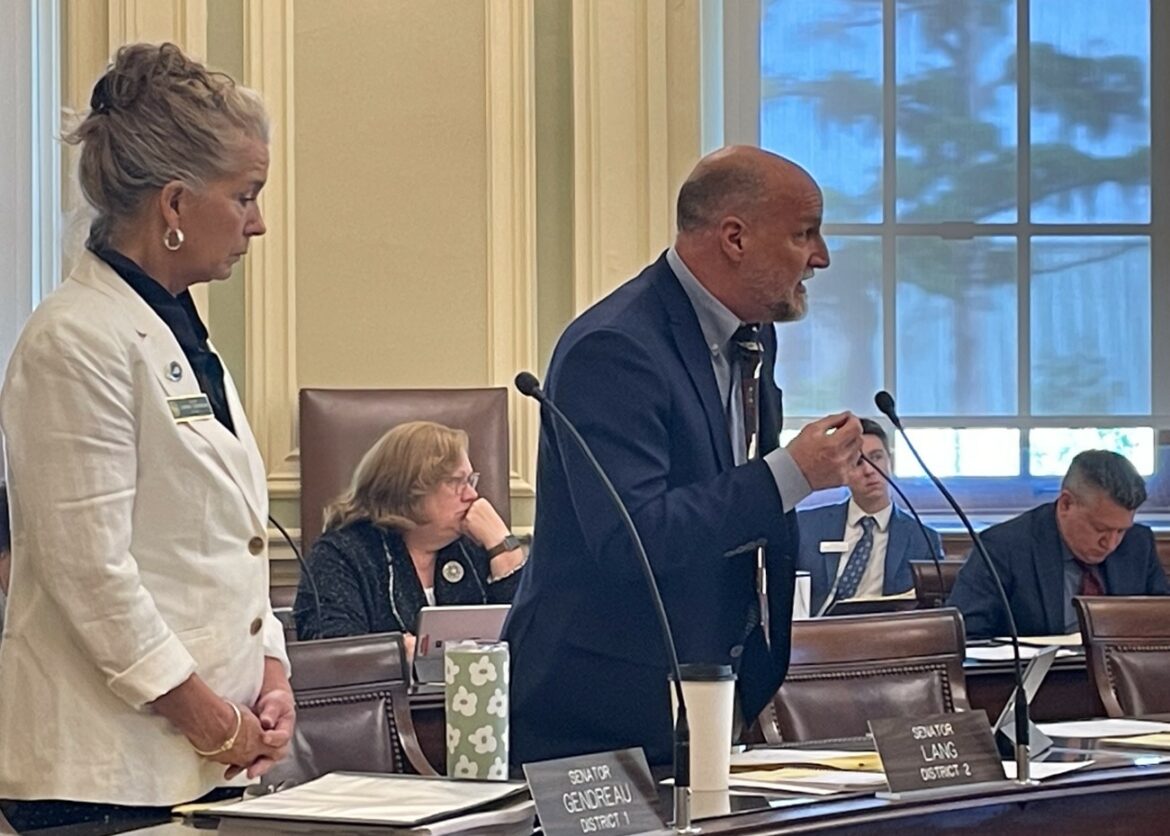By PAULA TRACY, InDepthNH.org
CONCORD – Expanding access to the state’s Education Freedom Accounts by income and disability was approved in bills passed by the Senate Thursday.
House Bill 367-FN-L increases eligibility by income to EFAs. It passed on a partisan vote of 14-10.
House Bill 446 allows notification of parents of disabled students the opportunity to participate in EFAs.
If signed by Gov. Chris Sununu as expected, the first bill will raise the qualifying eligibility from 300 percent of the federal poverty guideline to 350 percent allowing for more but an indeterminate number of children to access the EFA program.
It narrowly passed the House on a vote of 187-184 and got a 3-2 vote of ought to pass from the Senate Education Committee, along party lines with Republicans favoring the bill.
As of November 2022, 3,110 students were in the EFA program with an annualized cost estimated at $15.2 million with the typical grant averaging $4,900 per student, according to the fiscal note on the bill.
Sen. Donovan Fenton, D-Keene, rose in opposition to passing the bill. He said the EFA program “is like nothing we have ever seen before.” Fenton said there are no reporting requirements and yet this would raise the cap for more money to be spent on private and religious schools.
He said the EFA program is consistently over budget and has no transparency.
Sen. Suzanne Prentiss, D-Lebanon, also opposed the measure and urged the Senate to hold on passage so the state could get more EFA accountability.
Sen. Becky Whitley, D-Hopkinton, asked Prentiss if there is any reason why there would not be annual verification of income like the Medicaid program.
Prentiss said “No.”
“I want to hold the program accountable,” Prentiss said.
She said she appreciated all the students and parents who testified in support of the bill and “I heard them and am thankful for that.”
But she said the state has over 160,000 students in public education “and we have not been addressing their needs.”
Sen. Daryl Abbas, R-Salem, said minority children benefit the most from the EFAs and he said the new program is working well.
“All this is doing is expanding eligibility,” Abbas said.
Sen. Lou D’Allesandro, D-Manchester, rose against the proposal and disagreed with Abbas.
He said he supports public education calling it the best thing this country provides.
D’Allesandro countered that most of the people taking advantage of the EFA accounts are white children.
“We should be creating a better public education, a better framework for all our students,” he said.
After the vote, Education Commissioner Frank Edelblut said:
“By expanding the parameters of the successful Education Freedom Account program, even more students from throughout the state will have various options to fit their personal learning needs. Taxpayers continue to benefit as we deliver high quality educational pathways to families for a fraction of the cost of a traditional education.”
Sen. Bill Gannon, R-Sandown, said most people are happy with the public schools, but this gives those without that experience another option.
He said there is actually a savings to the state when children leave public education, as it is more costly.
Sen. Ruth Ward, R-Stoddard, said it really comes down to school choice and this allows them an option.
She also supported House Bill 446 which passed on the consent calendar.
It amends the law and requires the Bureau of Special Education Support within the Department of Education to notify parents of the rights and services available for children with a disability.
The bill clarifies federal and state regulations.
After the vote, Ward praised the passage, which was on the consent calendar saying, “Education options for special needs children are crucial as they provide tailored approaches, support systems, and a path to develop their unique abilities, achieve their full potential and lead fulfilling lives.”
BURGESS BIOPOWER BILL PASSES
The Berlin plant purchase power agreement with Eversource was an over-market cost agreement and due to that, it has run into some financial difficulty.
House Bill 142 forgives $50 million and avoids bankruptcy for the biomass plant in the state’s North Country. The 75-megawatt plant uses wood to make electricity and is the city’s largest taxpayer which creates an estimated 240 jobs in the region from the wood to the roads.
The plant has a $70 million economic impact on the region. It passed on a voice vote unanimously.
Sen. Carrie Gendreau, R-Littleton, said Burgess is the largest renewable generator in the state, producing enough electricity to power 67,000 homes.
Sen. Kevin Avard, R-Nashua, said in a statement after the vote that, “This legislation demonstrates our unwavering commitment to promoting clean sustainable energy solutions, while also prioritizing the best interests of New Hampshire ratepayers.”
DECLAWING CATS TABLED
A proposed law prohibiting the declawing of cats was tabled. Sen. Howard Pearl, R-Loudon, said it is not an issue in New Hampshire.
House Bill 231-FN will remain on the table.
Sen. Debra Altschiller, D-Stratham, said the taking of claws from felines would be similar to amputation of the last bone of each finger and is opposed by many organizations.






